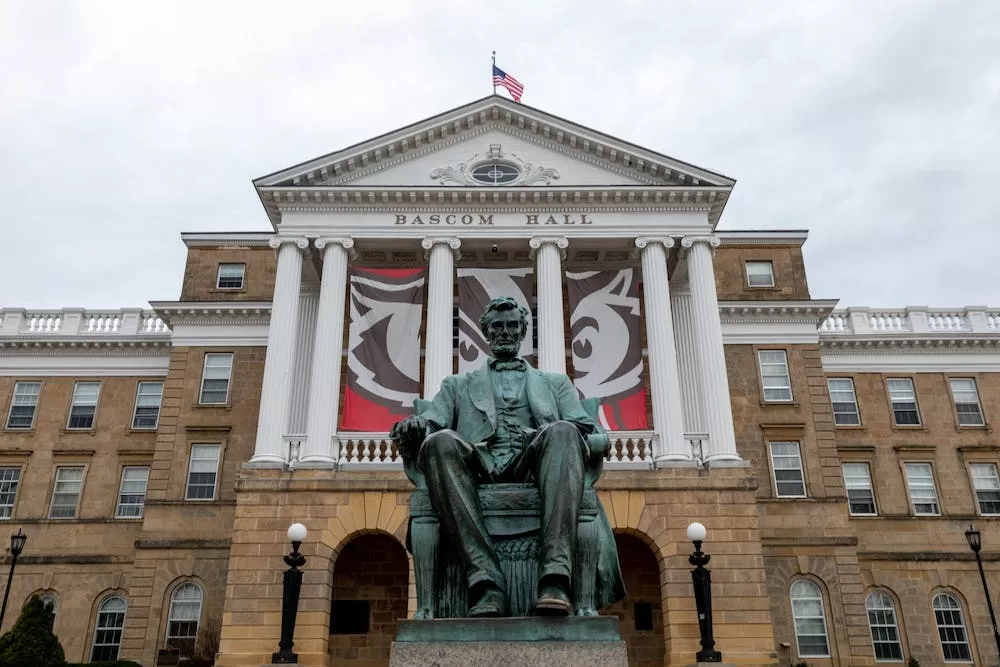The University of Wisconsin System Board of Regents has approved a deal with Republican lawmakers to reduce diversity initiatives in return for state funding by a vote of 11 to 6. Four days prior, the same board had rejected the same deal.
University system officials said that the agreement permits the use of more than $800 million for various projects and pay increases.
One of the compromises made by the university system is a cap on the quantity of jobs dedicated to diversity, equity, and inclusion. The Board of Regents meeting book states that during the next two years, the system will “realign” at least 43 DEI jobs through “restructuring and reimagining of the DEI function.”
The meeting book also stated that UW-Madison would discontinue its main faculty diversity recruitment initiative.
Wisconsin’s vote coincides with nationwide cuts to university DEI programs.
Bills to limit DEI programs at colleges and universities have been proposed or passed by more than a dozen state legislatures, who contend the offices waste money and have little effect. Several states, including South Carolina and North Carolina, have proposed legislation to monitor college DEI expenditures. A bill prohibiting public colleges and universities in Florida from allocating funds for Diversity, Equity, and Inclusion (DEI) was signed into law by Governor Ron DeSantis in May.
The place of these initiatives in colleges and universities has come under increasing scrutiny, mainly because of conservative lawmakers who have long maintained that DEI initiatives amount to brainwashing.
Scholars acknowledge that DEI policies and initiatives, which promote multiculturalism and offer resources to individuals from diverse backgrounds, can be an effective means of addressing inequality.
Democratic governor of Wisconsin Tony Evers voiced his displeasure with the board’s ruling on Wednesday.

“I reject the decision made by the regents today,” the governor declared via press release. “This outcome, this proposal, and the procedure that brought us here have left me feeling disappointed and frustrated.”
“It is also my expectation that everyone who made a commitment during this process that this action would not lessen the important work of building diversity, equity, and inclusion and ensuring that our campuses are welcoming and work for everyone will be working diligently to fulfil that commitment,” stated Evers. “And I will ensure without a doubt that they do.”
In a post on X, Jay Rothman, the president of the University of Wisconsin System, expressed gratitude to the Board of Regents for their approval but also noted that “not everyone will be happy.”
“Under the current situation, this is beneficial for Wisconsin, our universities, and our students.” On X, Rothman stated.”I understand that not everyone will be content and that reaching a compromise can be very challenging. This agreement includes important priorities that will help our students. Our obligations are subject to legislative action.
In addition, he said, “We are open to changing how some of these positions can better benefit student retention and graduation, but diversity and inclusion are core values.”
In a special board meeting on Saturday, the agreement that was reached last week between the state’s Republican leaders and the university system was first rejected 9–8.
According to a joint statement released on Friday by Republican House Speaker Robin Vos, the agreement includes a new engineering building at the University of Wisconsin-Madison in addition to hundreds of millions of dollars in tax revenue for pay increases and capital expenditures.
The agreement also includes a provision that, under certain circumstances, would allow Wisconsin’s top high school students to be admitted to universities automatically.
Following the compromise, House Speaker Robin Vos (R) released a statement on Friday saying, “Our caucus objective has always been aimed at dismantling the bureaucracy and division related to DEI and shifting the focus of our universities to what really counts: the accomplishments and success of our students.”
Edmund Manydeeds, a member of the University of Wisconsin System Board of Regents, stated following the vote on Wednesday that he agrees with and supports the board’s decision.
Edmund Manydeeds declared, “My intent is to ensure that the system, campus representatives, and the Board of Regents—all of whom have pledged to improve and reimagine the spirit of diversity, equity, and inclusion—actualize their commitments.



